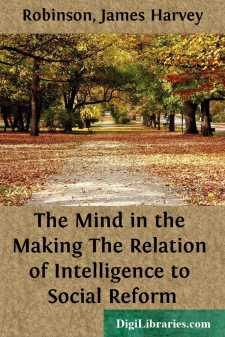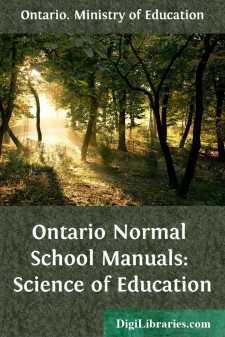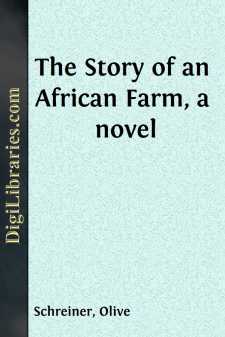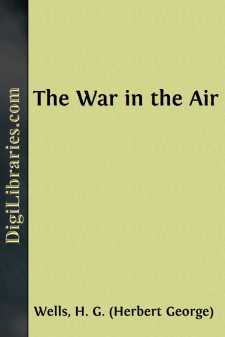Categories
- Antiques & Collectibles 13
- Architecture 36
- Art 48
- Bibles 22
- Biography & Autobiography 813
- Body, Mind & Spirit 142
- Business & Economics 28
- Children's Books 15
- Children's Fiction 12
- Computers 4
- Cooking 94
- Crafts & Hobbies 4
- Drama 346
- Education 46
- Family & Relationships 57
- Fiction 11828
- Games 19
- Gardening 17
- Health & Fitness 34
- History 1377
- House & Home 1
- Humor 147
- Juvenile Fiction 1873
- Juvenile Nonfiction 202
- Language Arts & Disciplines 88
- Law 16
- Literary Collections 686
- Literary Criticism 179
- Mathematics 13
- Medical 41
- Music 40
- Nature 179
- Non-Classifiable 1768
- Performing Arts 7
- Periodicals 1453
- Philosophy 64
- Photography 2
- Poetry 896
- Political Science 203
- Psychology 42
- Reference 154
- Religion 513
- Science 126
- Self-Help 84
- Social Science 81
- Sports & Recreation 34
- Study Aids 3
- Technology & Engineering 59
- Transportation 23
- Travel 463
- True Crime 29
The Mind in the Making The Relation of Intelligence to Social Reform
Description:
Excerpt
1. ON THE PURPOSE OF THIS VOLUME
If some magical transformation could be produced in men's ways of looking at themselves and their fellows, no inconsiderable part of the evils which now afflict society would vanish away or remedy themselves automatically. If the majority of influential persons held the opinions and occupied the point of view that a few rather uninfluential people now do, there would, for instance, be no likelihood of another great war; the whole problem of "labor and capital" would be transformed and attenuated; national arrogance, race animosity, political corruption, and inefficiency would all be reduced below the danger point. As an old Stoic proverb has it, men are tormented by the opinions they have of things, rather than by the things themselves. This is eminently true of many of our worst problems to-day. We have available knowledge and ingenuity and material resources to make a far fairer world than that in which we find ourselves, but various obstacles prevent our intelligently availing ourselves of them. The object of this book is to substantiate this proposition, to exhibit with entire frankness the tremendous difficulties that stand in the way of such a beneficent change of mind, and to point out as clearly as may be some of the measures to be taken in order to overcome them.
When we contemplate the shocking derangement of human affairs which now prevails in most civilized countries, including our own, even the best minds are puzzled and uncertain in their attempts to grasp the situation. The world seems to demand a moral and economic regeneration which it is dangerous to postpone, but as yet impossible to imagine, let alone direct. The preliminary intellectual regeneration which would put our leaders in a position to determine and control the course of affairs has not taken place. We have unprecedented conditions to deal with and novel adjustments to make—there can be no doubt of that. We also have a great stock of scientific knowledge unknown to our grandfathers with which to operate. So novel are the conditions, so copious the knowledge, that we must undertake the arduous task of reconsidering a great part of the opinions about man and his relations to his fellow-men which have been handed down to us by previous generations who lived in far other conditions and possessed far less information about the world and themselves. We have, however, first to create an unprecedented attitude of mind to cope with unprecedented conditions, and to utilize unprecedented knowledge This is the preliminary, and most difficult, step to be taken—far more difficult than one would suspect who fails to realize that in order to take it we must overcome inveterate natural tendencies and artificial habits of long standing. How are we to put ourselves in a position to come to think of things that we not only never thought of before, but are most reluctant to question? In short, how are we to rid ourselves of our fond prejudices and open our minds?
As a historical student who for a good many years has been especially engaged in inquiring how man happens to have the ideas and convictions about himself and human relations which now prevail, the writer has reached the conclusion that history can at least shed a great deal of light on our present predicaments and confusion....













